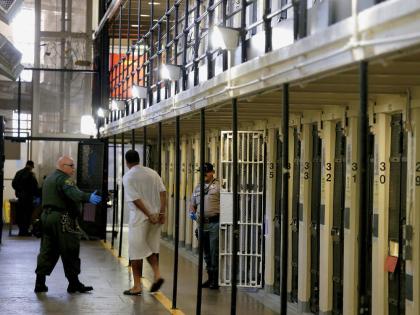Harvard may have to hold a new graduate-student union election if the final outcome of its November election does not result in a victory for the union, a National Labor Relations Board (NLRB) report ruled this week, after months of deliberations on the election. According to the ruling, the University did not provide, prior to the election, a complete list of students who were eligible to vote; some eligible voters were omitted. Because the initial vote count suggested that more students voted against unionizing than for it, the possibility of a new election was the outcome union organizers had hoped for throughout the hearings. It offers them an opportunity to renew their two-year organizing campaign in the next academic year and persuade more graduate students of the merits of unionization.
The NLRB’s ruling largely agreed with the objections to the election raised by the Harvard Graduate Student Union-United Auto Workers (HGSU-UAW), the student organizing group. Its team had argued throughout the hearings that Harvard had excluded eligible voters and effectively prevented them from voting. “The Employer has not substantially complied with the voter list requirements,” the ruling found. It also determined that 195 of the 314 ballots cast by students whose eligibility had been challenged were valid, and the rest were not. Most of the newly eligible voters are from the “look-back” group: students who were not employed by the University this past fall semester, when the election took place, but had been employed by Harvard in the prior academic year. Teaching assistants at the Graduate School of Design, who the University argued should not be eligible to vote, were also determined to be eligible.
In the initial tally, 1,456 students voted against unionizing and 1,272 in favor (one additional “no” vote has been added to the total, making the margin 185 votes). Now, the remaining 195 ballots will be counted. “[I]f a revised tally of ballots does not result in the [union] receiving a majority of the valid votes cast, the results of this election [should] be set aside and a new election be directed,” the report recommends. Because it’s unlikely those ballots will change the result, a new election appears to be the most probable outcome. But the NLRB regional director must still approve the recommendation, and either Harvard or HGSU-UAW has the opportunity to appeal.
The University opposes a new election because “the votes and voices of students should be respected and…the election results should stand. Ordering a new election ignores the majority of students who voted against unionization and is unwarranted by the fact,” Paul Curran, University director of employee and labor relation, said in a statement. “The majority of students identified as having been omitted from the voter list did in fact vote and their ballots will be counted in the final tally. But it is virtually impossible that these votes will reverse the result of the November election and the now 185-vote margin against unionizing.”
Apart from the election struggle, HGSU-UAW has continued to organize around issues of interest to graduate students that it argues indicate the need for a union. The group condemned a recent announcement by the Graduate School of Arts and Sciences (GSAS) that graduate students would receive 1.5-percent stipend increases next year, below the rate of inflation in the Boston area and lower than their raises have been in the past. Last week, HGSU-UAW also condemned a GSAS decision to distribute summer stipends to students in two installments, on July 1 and August 1, rather than in one installment on June 1, as it has in the past. (“Once again, the administration has restructured our pay without any student input and without any justification,” HGSU-UAW wrote.) Soon after, GSAS announced that students would still be able to receive their payments on June 1 if they request it.









